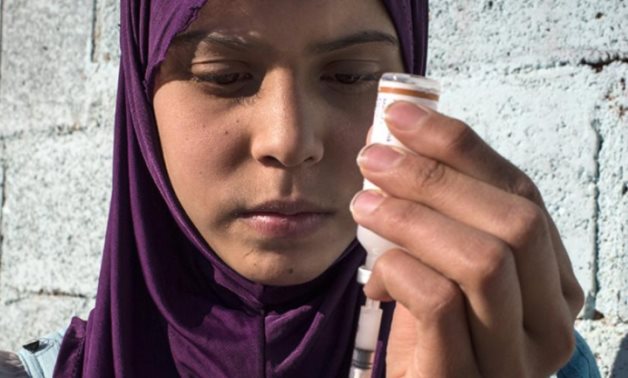
Raghad, who lives in a refugee camp in Jordan, suffers from type 1 diabetes - Photo: World Health Organization/Tania Habjouqa
CAIRO – 14 November 2021: It is estimated that 422 million adults developed diabetes globally in 2014, compared to 108 million adults in 1980.
The global prevalence of (age-standardized) diabetes has nearly doubled since 1980, rising from 4.7 percent to 8.5 percent in adults. This highlights an increase in risk factors associated with issues such as overweight and obesity.
Over the past decade, the prevalence of diabetes has increased significantly in low- and middle-income countries compared to high-income countries.
Diabetes is a major cause of blindness, kidney failure, heart attacks, strokes and lower limb amputations. Eating a healthy diet, combined with good physical activity and not smoking, can prevent or delay type 2 diabetes.
In addition, it is possible to treat diabetes and avoid its consequences or delay their appearance through medicines, regular examination and treatment of any complications.
On December 20, 2007, the United Nations General Assembly adopted Resolution 61/225 declaring November 14 of each year as World Diabetes Day.
This is in recognition of the urgent need to pursue multilateral efforts to encourage and improve human health, and to provide access to health care treatment and education.
The resolution also encourages member states to develop national policies for the prevention, treatment and care of diabetes in line with sustainable development in their health care systems.
The theme for World Diabetes Day 2021-2023 is “Access to Diabetes Care”.
One Hundred years after the discovery of insulin, millions of people with diabetes around the world still cannot get the care they need. People with diabetes need ongoing care and support to manage their health condition and avoid complications.
The centenary of the discovery of insulin offers a unique opportunity to make a meaningful difference to more than 460 million people living with diabetes and millions more at risk.
The global diabetes community, with its numbers, influence and determination, can make meaningful change together. We desperately need to meet the challenge.
Comments
Leave a Comment